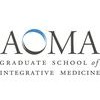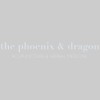
AOMA Graduate School of Integrative Medicine currently offers regionally accredited master's-level and doctoral-level graduate programs in acupuncture and Chinese medicine that prepare students for careers as skilled, professional practitioners. Since AOMA's founding in 1993, the institution has grown rapidly in size and reputation, drawing students from around the nation and faculty from around the world.
AOMA is an active member of the national and international healthcare community and remains committed to scholarship, research, and engagement, as evidenced by the publication and presentation schedules of the faculty, the yearly Southwest Symposium it hosts, and the continuing education opportunities the institution provides.
AOMA is an active member of the national and international healthcare community and remains committed to scholarship, research, and engagement, as evidenced by the publication and presentation schedules of the faculty, the yearly Southwest Symposium it hosts, and the continuing education opportunities the institution provides.
Services
Programs
Report
AOMA is a national leader in acupuncture and Chinese medical education. Students at AOMA benefit directly from the school's strong reputation. The institution offers rigorous masters- and doctoral-level curricula taught by internationally renowned faculty, study abroad opportunities, demonstrated student success, and a supportive community in a dynamic city.
Master's Degree
Report
The Masters of Acupuncture with a Chinese herbal medicine specialization (MAcCHM) at AOMA. At AOMA, students learn to practice a medicine that heals body, mind, and spirit.
From instruction on pulse diagnosis for psycho-emotional health to study of herbal formulation for cancer treatment, AOMA's rigorous and comprehensive master's degree program curriculum ensures students develop into skilled, experienced, and compassionate practitioners of acupuncture and Chinese medicine; playing a vital role within the overall healthcare system.
From instruction on pulse diagnosis for psycho-emotional health to study of herbal formulation for cancer treatment, AOMA's rigorous and comprehensive master's degree program curriculum ensures students develop into skilled, experienced, and compassionate practitioners of acupuncture and Chinese medicine; playing a vital role within the overall healthcare system.
Herbal Certification
Report
Designed for individuals who have already completed a degree in acupuncture at an ACAOM accredited school, but who need additional instruction in Chinese herbal medicine for professional licensure, the Certificate in Chinese Herbal Medicine (CCHM) Program offers access to AOMA's renowned herbal studies curriculum and faculty.
Intro to TCM Non-Degree Seeking
Report
Designed for people who are interested in learning the fundamentals of Chinese medicine without committing to a four year graduate program, this series introduces the basic concepts, theories, and methods that underlie the practices of acupuncture and Chinese herbal medicine.
While not enrolled in the degree program, students in the introductory series take courses alongside our master's degree students, have access to the same high-quality education, and are held to the same classroom standards.Students in the introductory series can receive credit for the courses they complete and, if they wish to do so at a future date, may apply for conversion to the full master's degree program.
While not enrolled in the degree program, students in the introductory series take courses alongside our master's degree students, have access to the same high-quality education, and are held to the same classroom standards.Students in the introductory series can receive credit for the courses they complete and, if they wish to do so at a future date, may apply for conversion to the full master's degree program.
Research
Report
A central educational objective for both the doctoral and master's programs in acupuncture and Chinese medicine is to that of incorporating evidence and experience-based practices into the instruction of our students and in the clinical practice of both faculty and students. The Mission of AOMA is to transform lives and communities through education, patient care, leadership and research in Chinese and other integrative medicines.
Reviews

Be the first to review Bandy Mike DC.
Write a Review


